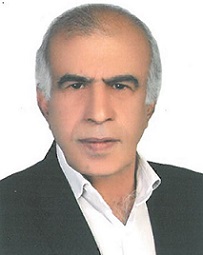|
Three more NASA shuttle flights may get ok’d
May 21 2008
by William Atkins
Members of the U.S. House of Representatives
are considering legislation what would provide money for one
additional shuttle flight beyond the scheduled 2010 retirement
of the Space Shuttle fleet, along with authorization for two
already budgeted flights.
The legislation would also authorize additional
money to speed development of the new Constellation program, and
to prolong U.S. presence on the Space Station.
The legislation, H.R. 6063, is called (short title) the “National
Aeronautics and Space Administration Authorization Act of 2008 .”
[Florida Today]
The extra money, if approved, would involve a mission to send
the science instrument Alpha Magnetic Spectrometer (AMS) to the
International Space Station. The AMS is a particle physics
experiment that is designed to study the evolution of the
Universe and to look for unusual objects in the Universe, such
as dark matter and antimatter—all by measuring cosmic rays.
Currently, the House bill authorizes US$150 million for the AMS
mission.
AMS, a point effort of the U.S. Department of Energy and sixteen
other international organizations, was originally part of a
shuttle mission, but was cancelled after the space shuttle
Columbia disaster placed extra constraints on the mission
schedule.
The other two missions are already on NASA’s roster of
contingency logistic flights (CLFs)—and thus are currently
budgeted. The legislation would, simply, authorize NASA to fly
these missions.
These two CLFs are STS-131, now scheduled to be flown in
February 2010, and STS-133, scheduled to be flown in May 2010.
Both would be assembly missions to the ISS, where STS-131 would
bring Express 3 and 4 to the Space Station, along with the
Docking Cargo Module, and STS-133, would bring Express 1 and 5.
Both flights are bringing up cargo that, currently, only the
space shuttle can handle, due to their size.
The last scheduled flight is STS-132 (STS-131 if the CLFs are
not flown), which is now scheduled to depart for the
International Space Station in March 2010. Space shuttle
Discovery is scheduled to carry Node 3 and Cupola to the ISS.
The House bill was introduced by Representative Mark Udall
(Democrat from Colorado), Representative Tom Feeney (Republican
from Florida), Representative Ralph Hall (Republican from Texas)
and Representative Bart Gordon (Democrat from Tennessess). Udall
is the chairperson for the House
Subcommittee Space and Aeronautics,
within the House Committee for Science and Technology.
Currently, the U.S. Senate does not have parallel legislation on
its docket of activities. Both the Senate and House would have
to sign similar legislation before being accepted or rejected by
President Bush.
In all, NASA stated in February 2008, that each added space
shuttle flight would cost approximately $300 to $400 million. In
addition, NASA administrator Michael Griffin stated that
extending the STS program by one year would cost between $2.7
and $4.0 billion.
The February 2008 report sent to the U.S. Congress stated, “In
summary, the existing space shuttle flight schedule, and
potentially up to two contingency logistics flights, may be
achievable before the [space shuttle's September] 2010
retirement. However, the program does not have a significant
amount of margin to accommodate an additional flight for AMS
without significant impacts to future exploration goals, cost,
and possibly safety.” [USA
Today, “House
bill would authorize additional shuttle flights"]
The NASA Authorization Act of 2008, now set before the U.S.
House, would also like to provide NASA with an additional $1
billion so that the operational start of the Constellation
project, which includes the Orion space capsule and Aries launch
vehicle, would be before its current timeframe of 2014/ 2015.
Some members of Congress, and other people in the space
industry, are concerned that the United States will have no
manned launching capabilities from the end of the Space Shuttle
program (around 2010/2011) to the start of the Orion/Ares
program (about 2014/2015).
The House bill also indicates that the United States should
commit to four additional years of participation at the
International Space Station—extending itself out past 2016.
Source
http://www.itwire.com/content/view/18332/1066/
1 2 3 4 5 6 7 8 9 10 Newest
articles
|
